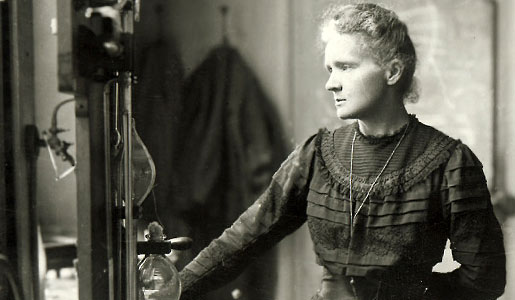Nobel Prize Awarded Women.
The Nobel Prize and Prize in Economic Sciences have been awarded to women 49 times between 1901 and 2016. Only one woman, Marie Curie, has been honoured twice, with the 1903 Nobel Prize in Physics and the 1911 Nobel Prize in Chemistry. This means that 48 women in total have been awarded the Nobel Prize between 1901 and 2016.

On 27 November 1895, Alfred Nobel signed his last will and testament, giving the largest share of his fortune to a series of prizes in Physics, Chemistry, Physiology or Medicine, Literature and Peace – the Nobel Prizes. In 1968, Sveriges Riksbank (Sweden’s central bank) established The Sveriges Riksbank Prize in Economic Sciences in Memory of Alfred Nobel.
Western countries have received a disproportionately high number of Nobel Prizes throughout the award’s history.
The top five countries with the most Nobel laureates are all western nations – with the United States, the United Kingdom, Germany, France and Sweden topping the rankings for the best minds in peace, literature, science and economics.
The United States has had the most Nobel Prize winners, with 336 winners overall. It has been most successful in the area of Physiology or Medicine, with 94 laureates since 1901.
Similarly, the United Kingdom that majority of its 117 Nobel laureates winning in Chemistry and Physiology or Medicine.
The United States tops the rankings for all prizes except Literature – where France, Germany and the United Kingdom perform better.
France has had 17 Nobel laureates in Literature, as well as 11 in Physics and 11 in Physiology or Medicine.
The dominance of Western countries is to be expected, due to the huge sociopolitical power these nations have held over the last century.
There are 31 countries which have had one Nobel Prize winner. Many of these are developing nations, including Algeria, Bangladesh, Brazil and Kenya.
Nobel Prize Awarded Women
Between 1901 and 2016, the Nobel Prizes and the Prize in Economic Sciences were awarded 579 times. This means that only 8% of the total Nobel Prize honorees were women.
But those women who won, have helped to change the world!
The youngest woman to be recognized in 2014 with the Nobel Peace Prize was Malala Yousafzai who was recognized at aged 17 “for her struggle against the suppression of children and young people and for the right of all children to education.”
The oldest woman, recognized in 2007 with the Nobel Prize in Literature, was Doris Lessing, aged 88, for “that epicist of the female experience, who with scepticism, fire and visionary power has subjected a divided civilisation to scrutiny”.
Marie Curie was the first woman to win a Nobel Prize in 1903.
But those women who won, have helped to change the world!


